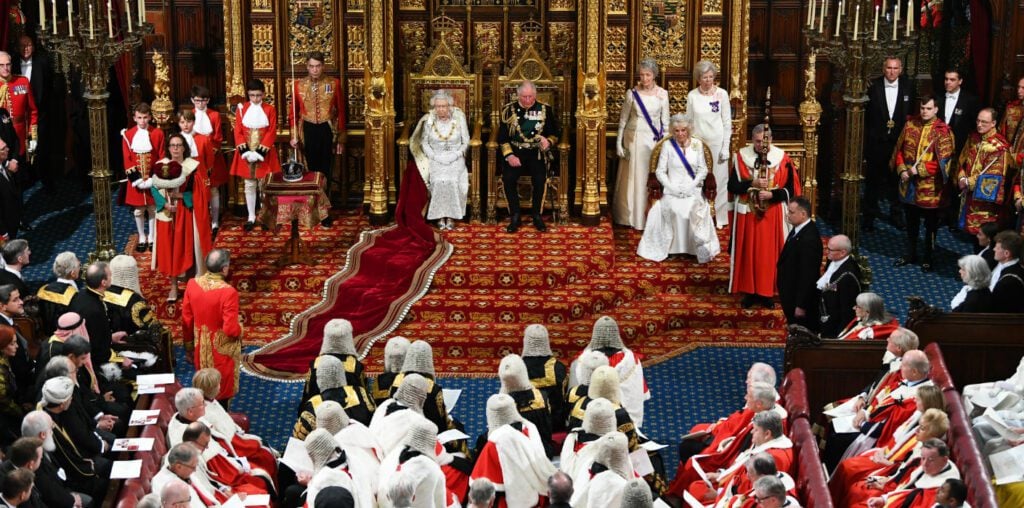The United Kingdom’s Parliament possesses all legislative supremacy thus holding all political decisions in the UK and over their colonies. One of the other major jobs of the parliament is to debate on and pass laws.
Before officially using English in the 1400s, the parliament used to conduct their hearings in Norman French. Today, when approving bills, the clerk says “La Reyne, remerciant Ses bons Subjects, accepte leur Benevolence, et ainsi le veult.”
Why Was Norman French Used Before the 1400s?
Back in those days, a sign of a good education is if you can fluently speak French. It became the standard language the educated classes and those practicing law. Which explains why they chose to speak in French at the time. (Source: Royal Central)
The Parliament of England continually used French until the latter part of King Edward III’s reign. By the time King Henry VI took over, English was used to conduct meetings in the parliament. (Source: Royal Central)
Today, the parliament uses Norman French but just for the sake of tradition and nothing else. (Source: Royal Central)
What Does La Reyne Le Veult Mean?
The English are very well set on their traditions and old customs. Which is exactly why they still use Norman French when confirming bills, laws and such. The phrase La Reyne Le Veult literally translates to The Queen wishes it. But this is not the only phase they use in passing bills or communicating with each other. (Source: Royal Central)
When Do You Used The Phrase: La Reyne Le Veult?
On most occasions the phrase La Reyne Le Veult is used when bills are passed. On other times, specifically when approving finance bills for the Royal Assent, the sentence: La Reyne, remerciant Ses bons Subjects, accepte leur Benevolence, et ainsi le veult is used. This literally translates to: The Queen, thanking her good subjects, accepts their benevolence, and so wills it. (Source: Royal Central)
If the Royal Assent is withheld, a different expression is used. La Reyne s’avisera is placed instead. The phrase means The Queen will advise herself. (Source: Royal Central)
What Other Phrases in Norman French Are Still Used in the Parliament Today?
When a bill passes through the third reading from the House of Commons, the House of the Lords approve the bill by writing the phrase: Soit baillé aux Seigneurs which means Let it be sent to the Lords. (Source: Royal Central)
When the bill is being returned to the House of Commons it reads A ceste bille avecque des amendmens les Seigneurs sont assentus meaning To this bill with amendments the Lords have assented. (Source: Royal Central)
When the amendment set are accepted, the bill will read: A ces amendmens avecque une amendment les Communes sont assentus that translates: To these amendments with an amendment the Commons have assented. (Source: Royal Central)
Do All the Clerks in the Parliament Speak French?
A retired clerk of the parliament by the name of David Beamish said that aside from the words he reads out loud, he does not speak a word of Norman French. (Source: Royal Central)
